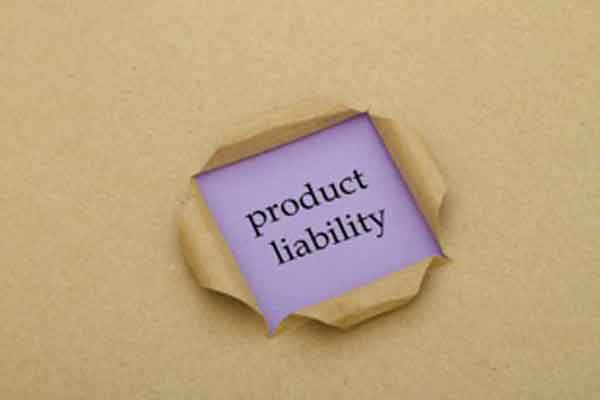
NEW YORK – LEGAL – Often when someone hears the phrase “personal injury,” they think of one person or one thing harming another intentionally. Most personal injury claims have nothing to do with intent; they are actually based upon negligence. When it comes to the products we use, a manufacturer has an obligation to the consumer to provide a safe product. That isn’t always the case. There are times when products hit the market and they may be dangerous, or when product issues with aren’t caught through quality control and end up harming those who use them.
Although product liability claims technically fall under “personal injury,” they are inherently different. Defective products are guided by the rule of “strict liability,” while many other personal injury cases are not. Strict liability means that the victims need not prove that a manufacturer or employee made a mistake to win their case. In other types of personal injury cases, the plaintiff typically has to prove that the other party was in some way “negligent” or made a mistake to prove their case.
When someone makes a defective product claim, they do not have to prove that the manufacturer of the product was negligent or made an error; they only have to prove that:
- The product itself was defective in some way
- They were using the product as instructed
- They suffered an injury
- The injury they suffered was due directly to use of the product
The hardest part of proving any product liability case is typically proving that the product was defective. A manufacturer will fight very hard to ensure that their product is not labeled as defective. If they do so, then anyone who has been injured using the product will have an open door for litigation. Also, if they admit in court proceedings or in a settlement that their product was defective, then there is a good likelihood that they will have to either discontinue the item, recall it, or both — which can put even the healthiest company out of business.
What other personal injury cases use negligence as their cornerstone
Besides product liability, most personal injury cases are determined by the law of negligence. That means for other cases, in order to recover for injuries or losses, the plaintiff has to prove that the other party, or the defendant, was negligent in some manner. For most personal injury suits, you have to prove that your injuries were a direct result of something that the other party did “wrong” by “breaching their duty of care.”
Other types of personal injury suits that require negligence law
Other types of personal injury lawsuits that involve negligence law are:
- Car accidents
- Medical malpractice
- Slip and fall accidents
- Defamation
- Dog bites
- Assault, battery and other intentional torts
Dog bite laws vary from state to state, so proving your case in a dog bite lawsuit depends on the laws that govern animal bites in the court jurisdiction where you file your claim. In other types of personal injury suits, the plaintiff has the responsibility of proving that the defendant took reasonable care.
“Reasonable care” is a legal constraint held as a “gold standard” of what a reasonable person would do under the same circumstances. The law states that the defendant has an obligation to take “reasonable care” to ensure someone’s safety. If they breached their duty of reasonable care, then they will be held liable for any damages or injuries that were sustained by the plaintiff.
Product liability falls under the umbrella of personal injury law but operates under different guidelines. Unlike other personal injury claims, to win a product liability case, the plaintiff does not need to prove that the manufacturer was negligent or did something wrong; they just have to prove that the product was defective. Sometimes that is easier said than done.
If you were injured by a product you purchased, it is possible to receive fair compensation for your injuries. To make sure that you can prove your case, it is always a good idea to hire a criminal attorney in Queens, who specializes specifically in product liability, since those type of personal injury suits are guided by different laws than others.
